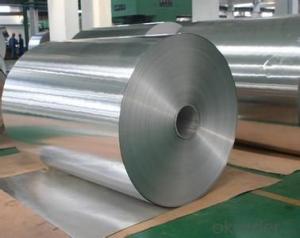Aluminium Strip/Coil Accordinrg Your Requirment
- Loading Port:
- Shanghai
- Payment Terms:
- TT OR LC
- Min Order Qty:
- 5 m.t.
- Supply Capability:
- 1000000 m.t./month
OKorder Service Pledge
OKorder Financial Service
You Might Also Like
1.Structure of Aluminium Strip/Coil:
Mill Finished Aluminium Strip/Coil is designed for many field such as electronics, instruments, lighting decoration, packing industry, and house decoration, curtain wall, honeycomb-core panel, sandwich panel, aluminum composite panel, aluminum composite pipe etc.. Mill finished Aluminium Strip/Coil for is hard and everlasting under the blazing sun. You can choose the alloys as your habitation and we will do our best to meet your requests.
2.Main Features of the Aluminium Strip/Coil:
• Smooth surface
• High manufacturing accuracy
• High strength of extension and yield
• Well packaged
• No marks, no scratch, no excessive oil
3. Aluminium Strip/Coil
Alloy: 1050, 1060, 1070, 1100, 3003, 3004, 3005, 3105, 5052, 5083, 5754, 8011, 8006
Temper: H14, H16, H18, H22, H24, H26, H32, O/F
Thickness: 0.2mm-100mm
Width: 30mm-1700mm
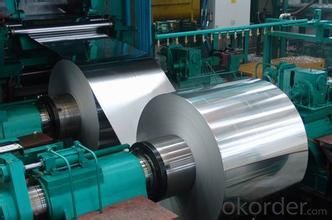
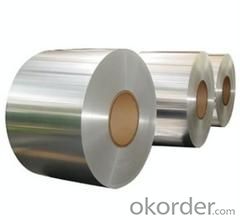
4. Production of Aluminium Strip/Coil
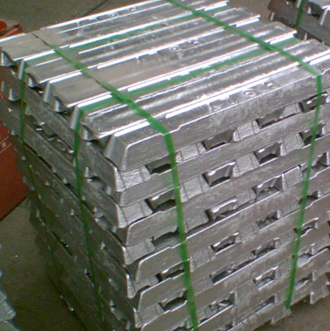
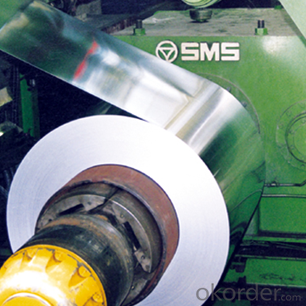
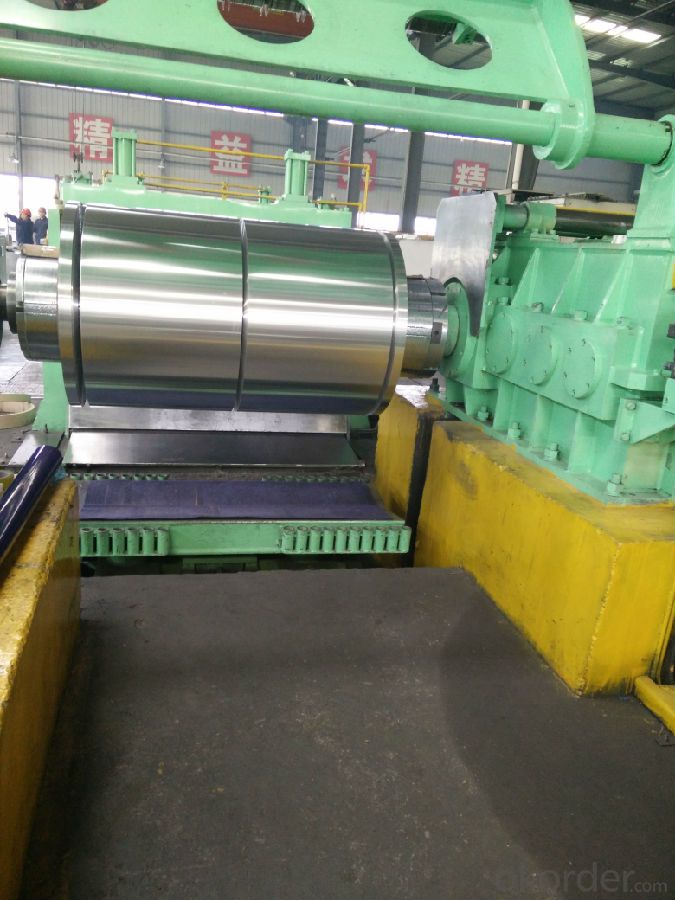
5.FAQ
We have organized several common questions for our clients,may help you sincerely:
① How about your company?
A world class manufacturer & supplier of aluminum coil and alloy blanks. Aluminum production base is comprised of 18 aluminum annealers, 10 coil and foil mills, 4 continuous production lines, 2 hot rolling production line and 3 prepainted lines.
Export 5000 tons per month to Asia, America and Middle East. Always do the best for our clients.
②Can you guarantee the quality of the products?
We are responsible for the quality of materials to get a long-term cooperation with clients in a reasonable period of time and we are glad to arrange and coordinate any third party inspection for you.
③What is the delivery time after purchase?
35 day after receiving client’s deposit or correct LC
- Q:What are the different coil coating options for aluminum coils?
- There are several different coil coating options available for aluminum coils, each offering unique benefits and characteristics. 1. Polyester: Polyester coil coatings are the most commonly used option for aluminum coils. They provide excellent durability and resistance to weathering, making them suitable for outdoor applications. Polyester coatings also offer good color retention and are available in a wide range of colors and finishes. 2. Polyvinylidene Fluoride (PVDF): PVDF coatings are known for their exceptional performance and durability. They have excellent resistance to UV rays, chemicals, and extreme weather conditions. PVDF coatings also provide outstanding color retention and maintain their appearance for a longer period of time, making them ideal for architectural applications. 3. Polyurethane: Polyurethane coatings offer a high level of resistance to abrasion, chemicals, and corrosion. They provide good adhesion and flexibility, allowing for easy forming and bending of the coated aluminum. Polyurethane coatings are often used in industrial applications where durability and protection are crucial. 4. Silicone-modified Polyester (SMP): SMP coatings combine the benefits of both polyester and silicone coatings. They offer excellent resistance to fading, chalking, and environmental pollutants. SMP coatings provide good flexibility and adhesion, making them suitable for a wide range of applications. 5. Epoxy: Epoxy coatings are known for their excellent adhesion and corrosion resistance. They provide a hard, durable finish that is resistant to chemicals and abrasion. Epoxy coatings are commonly used in industrial settings where harsh conditions are present. 6. Plastisol: Plastisol coatings are typically used in applications that require a textured or decorative finish. They offer good flexibility and impact resistance. Plastisol coatings can be customized with various patterns and textures to enhance the appearance of the coated aluminum. Overall, the choice of coil coating option for aluminum coils depends on the specific requirements of the application, such as the desired level of durability, weather resistance, color retention, and appearance. It is important to consider these factors when selecting the most suitable coating option for your aluminum coils.
- Q:How do aluminum coils compare to galvanized steel coils in terms of longevity?
- Aluminum coils generally have a longer lifespan compared to galvanized steel coils. This is because aluminum is naturally corrosion-resistant, providing better protection against rust and other environmental factors. Additionally, aluminum coils are less prone to damage caused by scratches or dents, further contributing to their longevity. However, the specific lifespan of both types of coils can vary depending on the quality of materials used and the maintenance practices followed.
- Q:How are aluminum coils transported and delivered?
- Aluminum coils have various transportation options, including road, rail, and sea. The choice of transportation depends on factors like distance, quantity, and urgency. For short distances, road transportation is common. Special trucks with flatbed trailers or coil carriers are used to securely transport the coils. These trucks have features like adjustable cradles or coil pads to prevent shifting during transit. Longer distances often involve rail transportation. Railcars can accommodate many coils depending on their size and weight. Rail transport is cost-effective and environmentally friendly for long-haul journeys. When coils need to be transported overseas or to another continent, sea transportation is preferred. Shipping containers protect the coils from potential damage. Cargo ships have the capacity and stability for long-distance transportation. Regardless of the mode of transportation, it is vital to handle aluminum coils carefully to prevent damage. Coils are protected from excessive vibration, impact, and adverse weather conditions. Tracking systems are used to monitor the location and condition of the coils during transportation. Overall, the transportation and delivery of aluminum coils require a well-coordinated logistics network to ensure timely and efficient delivery while minimizing the risk of damage.
- Q:What are the potential applications of coil-painted aluminum coils?
- Coil-painted aluminum coils have a wide range of potential applications. They can be used in various industries such as construction, automotive, and electronics. In construction, they can be used for roofing, wall cladding, and insulation purposes due to their durability, corrosion resistance, and aesthetic appeal. In the automotive industry, coil-painted aluminum coils can be utilized for manufacturing car bodies, interior trim, and decorative elements. Additionally, these coils can be employed in the electronics sector for producing casings, heat sinks, and other components. Overall, the versatility and unique properties of coil-painted aluminum coils make them suitable for diverse applications across different sectors.
- Q:Can aluminum coils be used in curtain wall systems?
- Yes, aluminum coils can be used in curtain wall systems. Aluminum is a popular material choice for curtain walls due to its lightweight, durable, and corrosion-resistant properties. Aluminum coils can be easily fabricated and formed into the desired shapes and profiles required for curtain wall systems, making them a suitable option for this application.
- Q:How are aluminum coils processed for specific surface coatings?
- Aluminum coils are processed for specific surface coatings through a series of steps that involve cleaning, pre-treatment, application of the coating, and curing. Firstly, the aluminum coils are thoroughly cleaned to remove any dirt, grease, or other contaminants that may hinder the adhesion of the coating. This is usually done through a combination of chemical cleaning agents, rinsing, and sometimes mechanical methods. After cleaning, the coils undergo a pre-treatment process. This step prepares the surface of the aluminum for optimal adhesion of the coating. Depending on the specific coating requirements, the pre-treatment can involve chemical etching, conversion coating, or both. Chemical etching creates a rough surface that enhances the bond between the aluminum and the coating, while conversion coating forms a thin layer that improves corrosion resistance and adhesion. Once the pre-treatment is complete, the specific surface coating is applied onto the aluminum coils. This can be done through various methods such as coil coating, spray coating, or electrostatic coating. Coil coating is a common technique where the coil is continuously fed through a coating line where the coating material is applied evenly and precisely onto the surface. After the coating is applied, the aluminum coils are cured to ensure the coating properly adheres and hardens. Curing can be done through heat, where the coated coils are passed through an oven or furnace at a specific temperature and time to promote cross-linking and curing of the coating material. Alternatively, some coatings may require UV curing, where the coated coils are exposed to ultraviolet light to achieve the desired curing process. Overall, the process of processing aluminum coils for specific surface coatings involves cleaning, pre-treatment, coating application, and curing. This ensures that the coils are properly prepared and coated to meet the desired surface properties and performance requirements.
- Q:Can aluminum coils be used in food packaging?
- Indeed, food packaging can make use of aluminum coils. Aluminum, a secure and adaptable substance, has enjoyed extensive usage in the food packaging sector for numerous years. It provides numerous advantages, including its lightweight nature, resistance to corrosion, and exceptional thermal conductivity. These qualities render it perfect for food packaging scenarios that prioritize the maintenance of food product quality, freshness, and safety. Aluminum coils can be conveniently molded into various shapes and dimensions, permitting tailored packaging solutions. Furthermore, aluminum qualifies as a sustainable material due to its 100% recyclability, further augmenting its allure for food packaging purposes.
- Q:Can aluminum coils be used in the production of cookware?
- Yes, aluminum coils can be used in the production of cookware. Aluminum is a popular material choice for cookware due to its excellent heat conductivity and lightweight nature. By using aluminum coils, manufacturers can easily shape and form the cookware into various shapes and sizes. Additionally, aluminum is resistant to rust and corrosion, making it suitable for long-term use in the kitchen. However, it is important to note that aluminum cookware should have a non-stick coating or be anodized to prevent any potential interaction between the aluminum and food, as excessive consumption of aluminum can be harmful to health.
- Q:Can aluminum coils be used for electrical transformers?
- Yes, aluminum coils can be used for electrical transformers.
- Q:If you were to make something from each of these.which is more expensive? aluminum or carbon fiber ?which is stronger?What would the advantages or disadvantages of each be?
- This Site Might Help You. RE: aluminum vs carbon fiber ? If you were to make something from each of these. which is more expensive? aluminum or carbon fiber ? which is stronger? What would the advantages or disadvantages of each be?
1. Manufacturer Overview |
|
|---|---|
| Location | |
| Year Established | |
| Annual Output Value | |
| Main Markets | |
| Company Certifications | |
2. Manufacturer Certificates |
|
|---|---|
| a) Certification Name | |
| Range | |
| Reference | |
| Validity Period | |
3. Manufacturer Capability |
|
|---|---|
| a)Trade Capacity | |
| Nearest Port | |
| Export Percentage | |
| No.of Employees in Trade Department | |
| Language Spoken: | |
| b)Factory Information | |
| Factory Size: | |
| No. of Production Lines | |
| Contract Manufacturing | |
| Product Price Range | |
Send your message to us
Aluminium Strip/Coil Accordinrg Your Requirment
- Loading Port:
- Shanghai
- Payment Terms:
- TT OR LC
- Min Order Qty:
- 5 m.t.
- Supply Capability:
- 1000000 m.t./month
OKorder Service Pledge
OKorder Financial Service
Similar products
New products
Hot products
Related keywords
